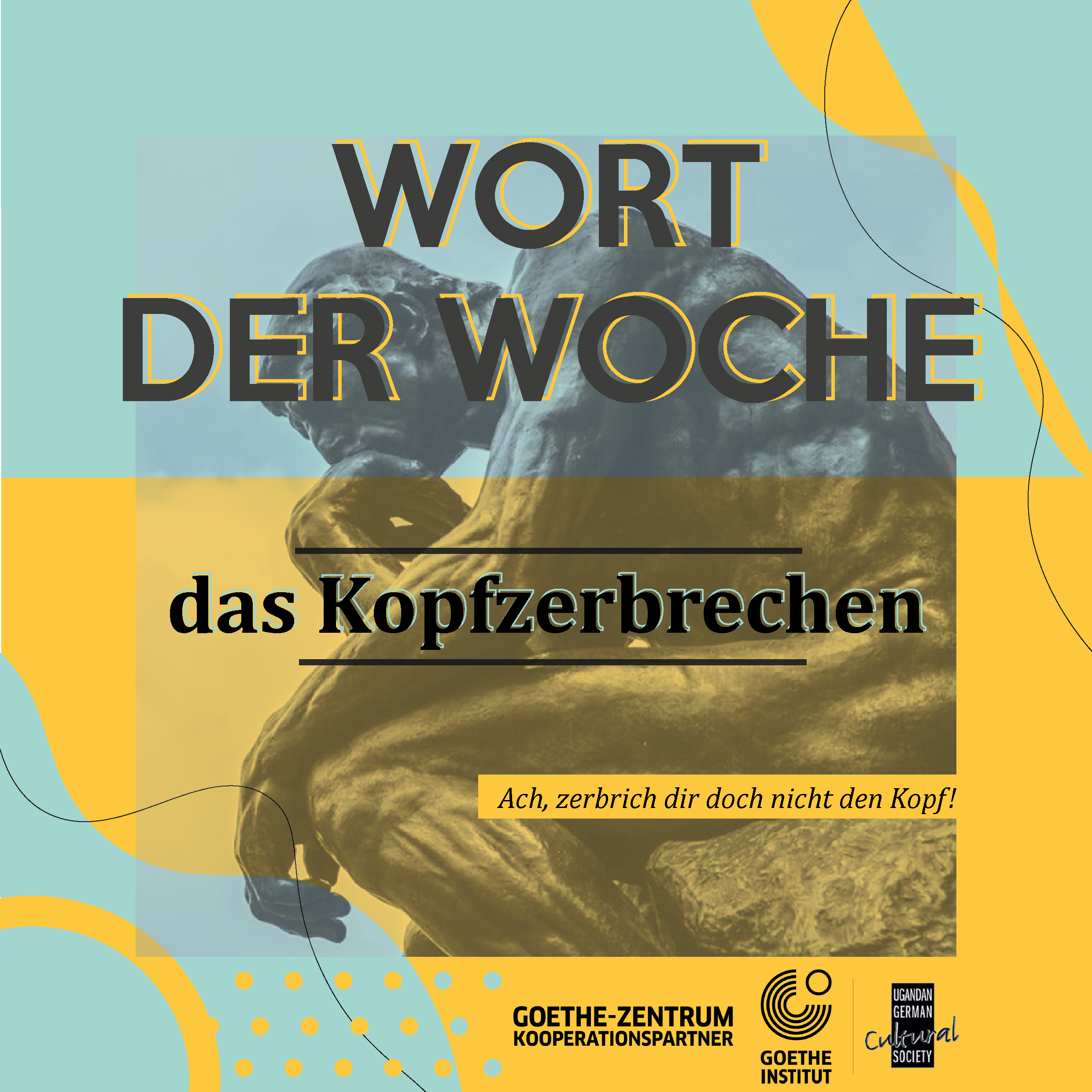
DAS KOPFZERBRECHEN
KOPFZERBRECHEN is literally translated as ‚headbreak‘. Many things can break, but how does the head break?
A person who breaks his or her head is thinking a lot of thoughts. He or she wants to find a solution to a problem, or a way out of a difficult situation. It feels like the many thoughts make the head burst or break: es bereitet ihm Kopfzerbrechen. In the past, head also meant cup. You see, the English word 'cup' is related to the German word 'Kopf'.
Learn more about it at
https://www.dw.com/de/kopfzerbrechen-über-den-kopf/a-838039 and https://learngerman.dw.com/de/das-kopfzerbrechen/a-58048131


VERPEILT (SEIN)
"Judith came to school again this morning because she didn't realize that the first lessons were cancelled. The woman is so out of it (verpeilt)!"
To be „verpeilt“ means to be confused, forgetful, inattentive or absent-minded. Originally, the word comes from seafaring from the word „anpeilen“, i.e. to aim or steer at or to be on the right course. If the captain gets it wrong here, it can quickly end badly. Sometimes it can seem funny and endearing to be „verpeilt“. But it can also be really exhausting. What do you think about it? Do you know any people who are „verpeilt“?

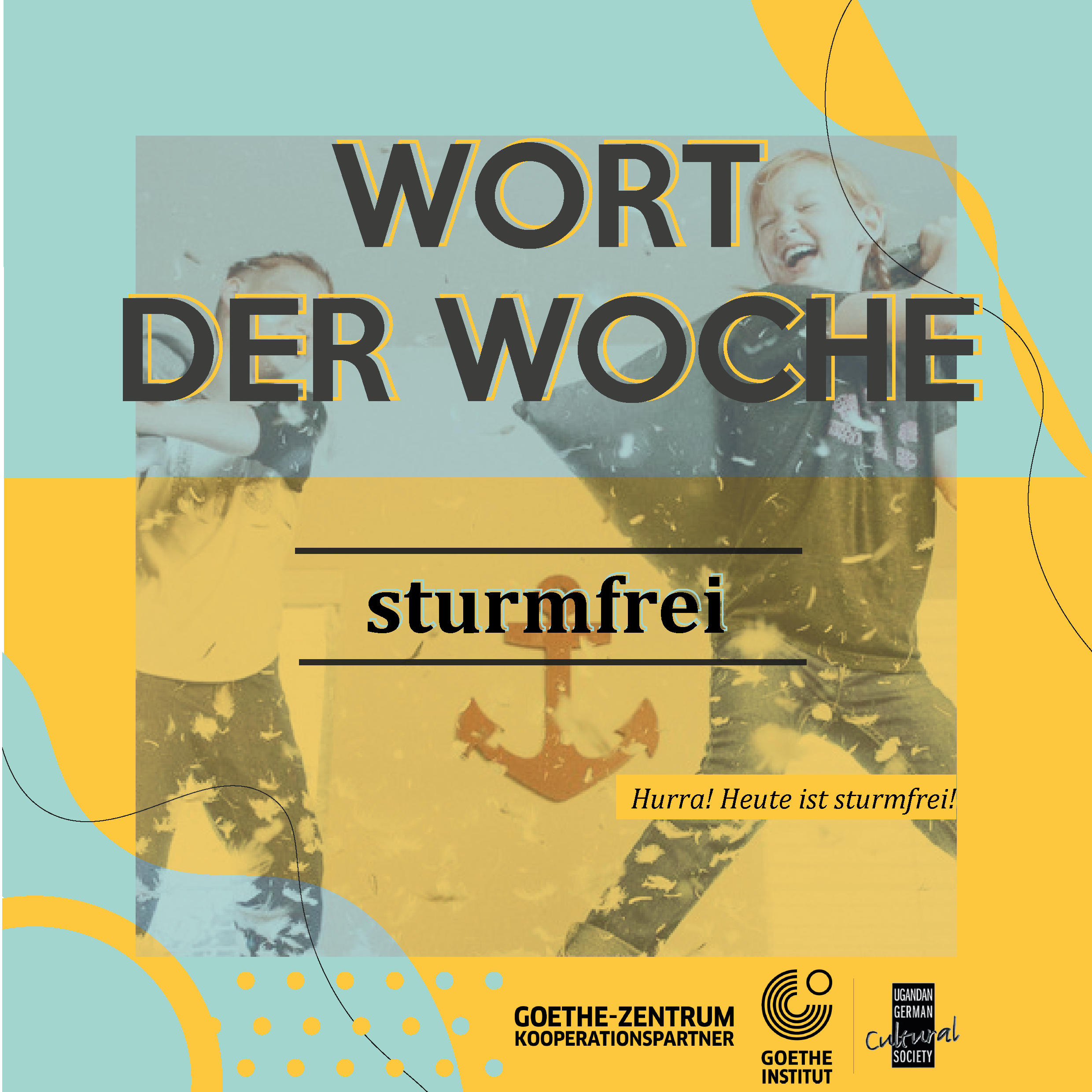
STURMFREI
Sturmfrei, literally storm free, has nothing to do with the weather! It means having the house to yourself. Now you might ask yourself, how did the Germans think of storm free as the right expression for being home alone? Here's why: Sturm in German means storm as well as attack (usually of a castle, fort, etc.). Now when castles or fortresses were protected very well they were free of said attacks, hence storm free. Now, when you have the house to yourself, you can rest assured that no one else will occupy your space, hence Germans call this sturmfrei. Wow!
How do you call it when the parents aren’t around and you have all the apartment to yourself?

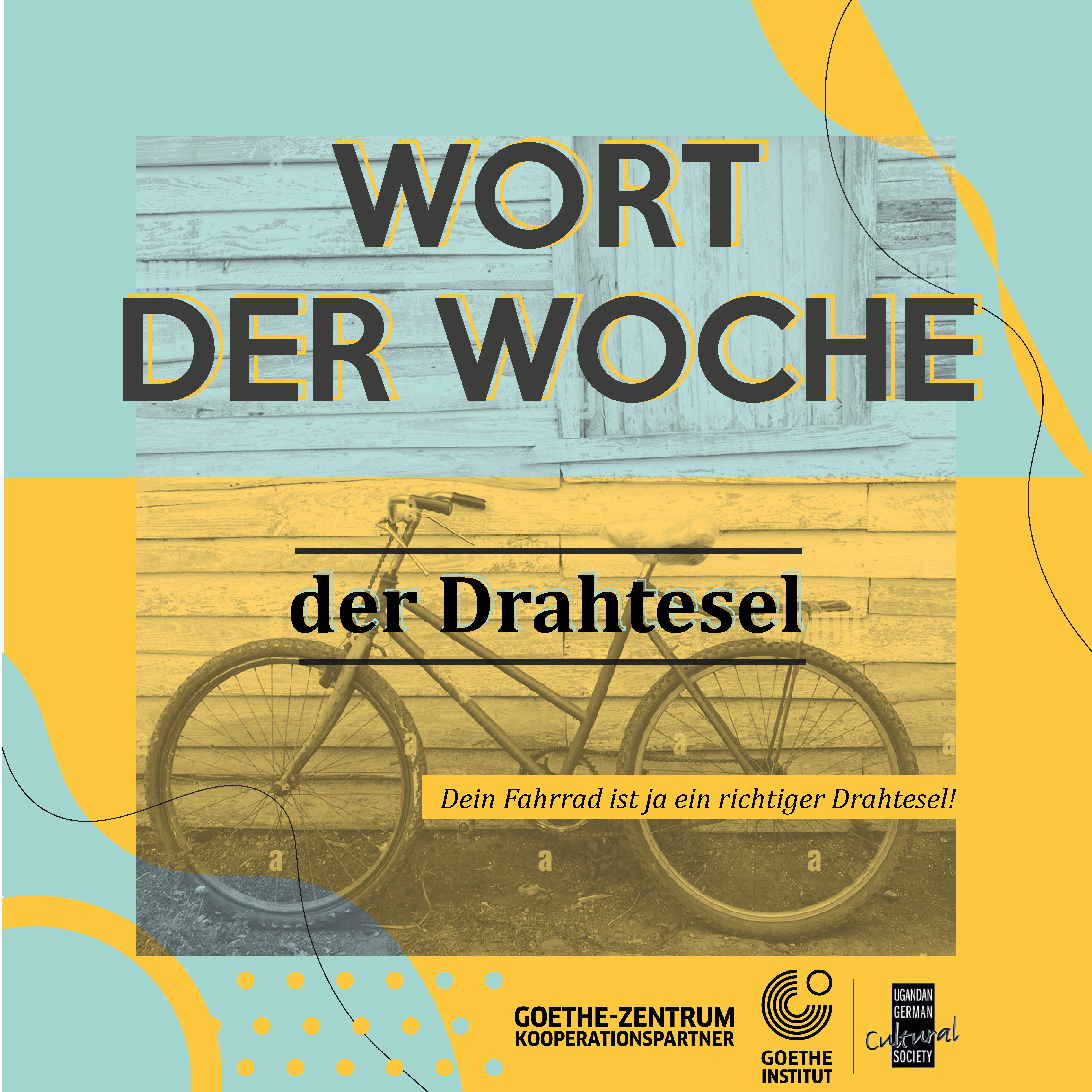
DER DRAHTESEL
Only a few people in Germany have a donkey at home, but many own a ‚wire donkey‘. This one needs no food nor water. The wire donkey – this is what Drahtesel literally means – is actually a bike in Germany. It is used in a very humorous way, especially for older bikes.

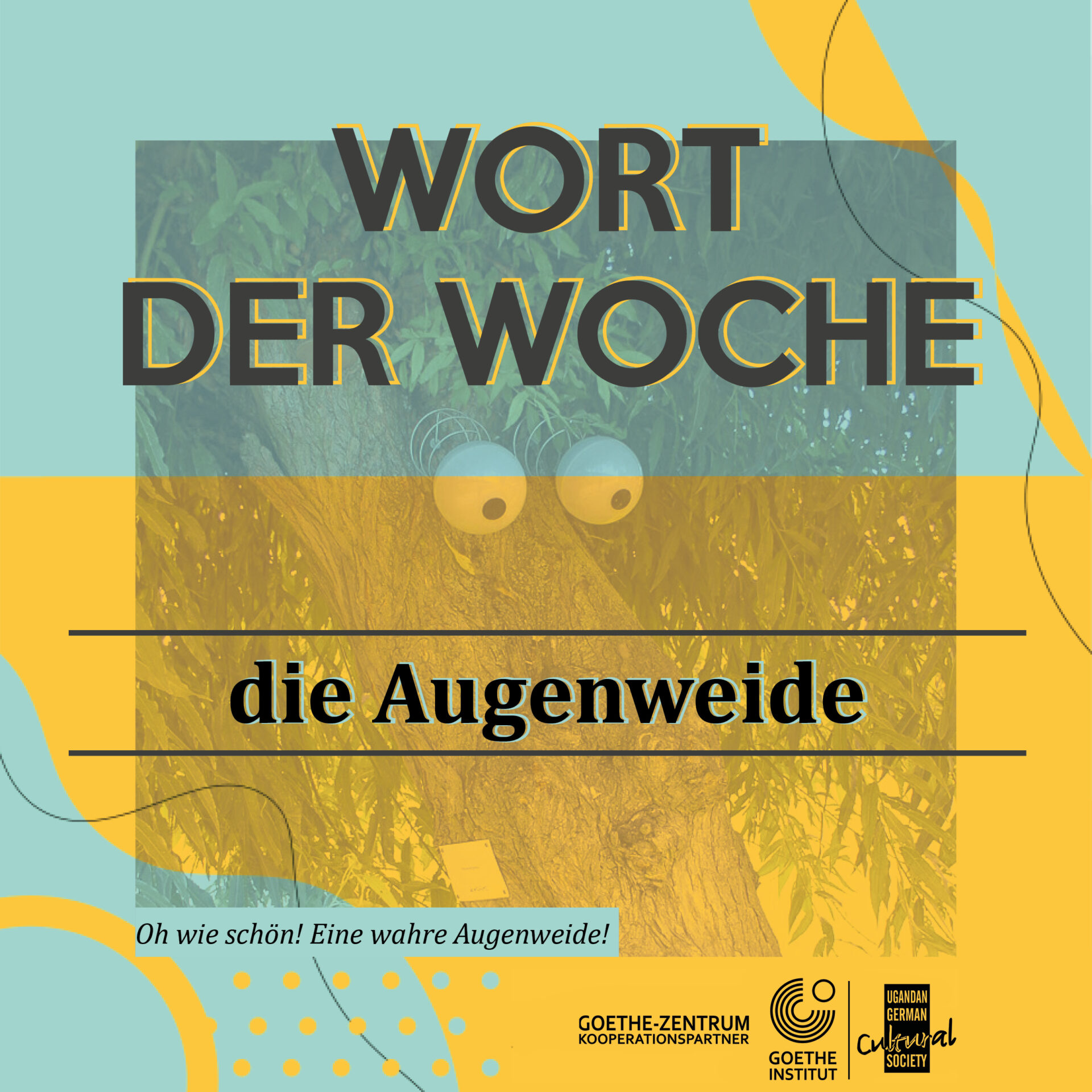
DIE AUGENWEIDE
Everything is so beautiful here, this mountain panorama, this view, this sunset... very aesthetic! It's a feast for the eyes!
Augenweide is a compound noun composed of Auge and Weide. Auge can be translated quite simply to the English eye. But what does Weide mean? The term does not derive from the current meanings (die Weide = meadow) as agricultural land or from the plant genus (die Weide = willow) but derives from the Middle High German meaning of "weide" as a refreshment or food. So when you see something really welcome and pleasing, your heart rejoices and: it is a treat for the eye.
If it is a treat for the ears, you call it Ohrenschmaus.

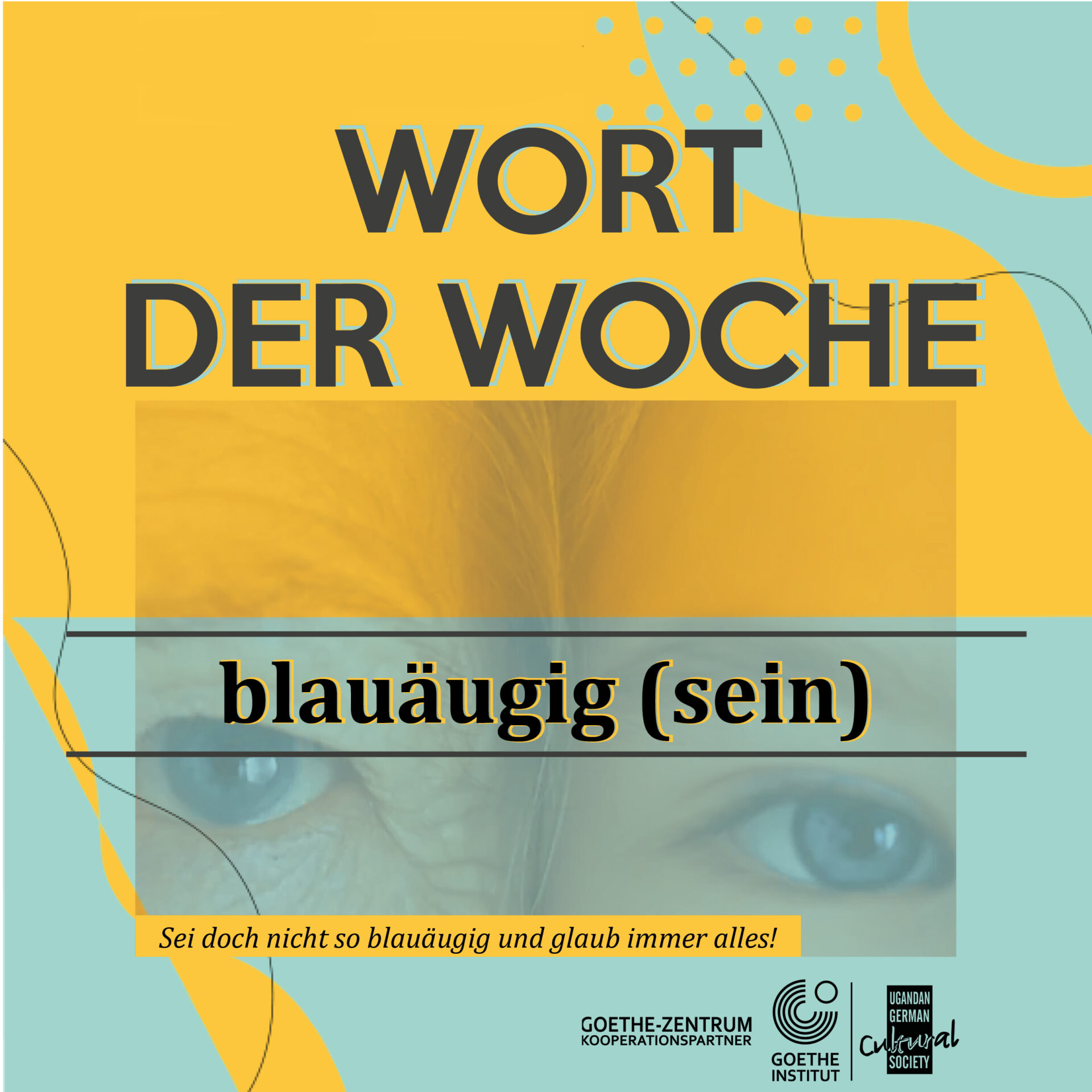
BLAUÄUGIG (SEIN)
„Deine blauen Augen machen mich so sentimental! So blaue Augen!“ Oh, what a great 80s song by Ideal (https://www.youtube.com/watch?v=z44rV0r2fyY)
Yes of course you can talk about the eye color when you say blauäugig, so blue-eyed. But it is often used in another context, namely to describe someone as gullible, naive, inexperienced, uncritical: Newborns (in Central Europe) almost always have blue eyes, hence the association also with naivety and innocence. And just as it takes time for the offspring to develop the actual eye color, it takes time for some people, with age and experience, to shed the blue-eyedness - the Blauäugigkeit.
Do you know such naive people?


DIE ESELSBRÜCKE
When Eselsbrücke is translated into English it means a bridge for a donkey. The reason lies in the history of donkeys.
Donkeys were used to transport goods for a long time and since they do not like to cross the water, their owners started building up small bridges for them to make crossing easier. That’s how the word developed to today’s meaning!
Eselsbrücke nowadays is a word for a learning aid. Specifically, when you build up a story around something you have to learn to make it easier to remember. Often people also just create a saying or rimes to help them remember everything they have learned. Like building the bridges for the donkeys, it is at first more work but makes life a lot easier after.
An example: When German students learn English, there is a rhyme to learn the rule: „Did“ und Grundform ist die Norm, nach „did“ steht nie die Past-Tense-Form! Meaning: The past tense of a verb is never used together with "did", because this already indicates Past Tense (did= Past Tense of do). Instead, the infinitive of the verb is used.
You know any funny Eselsbrücken which helped you to remember?

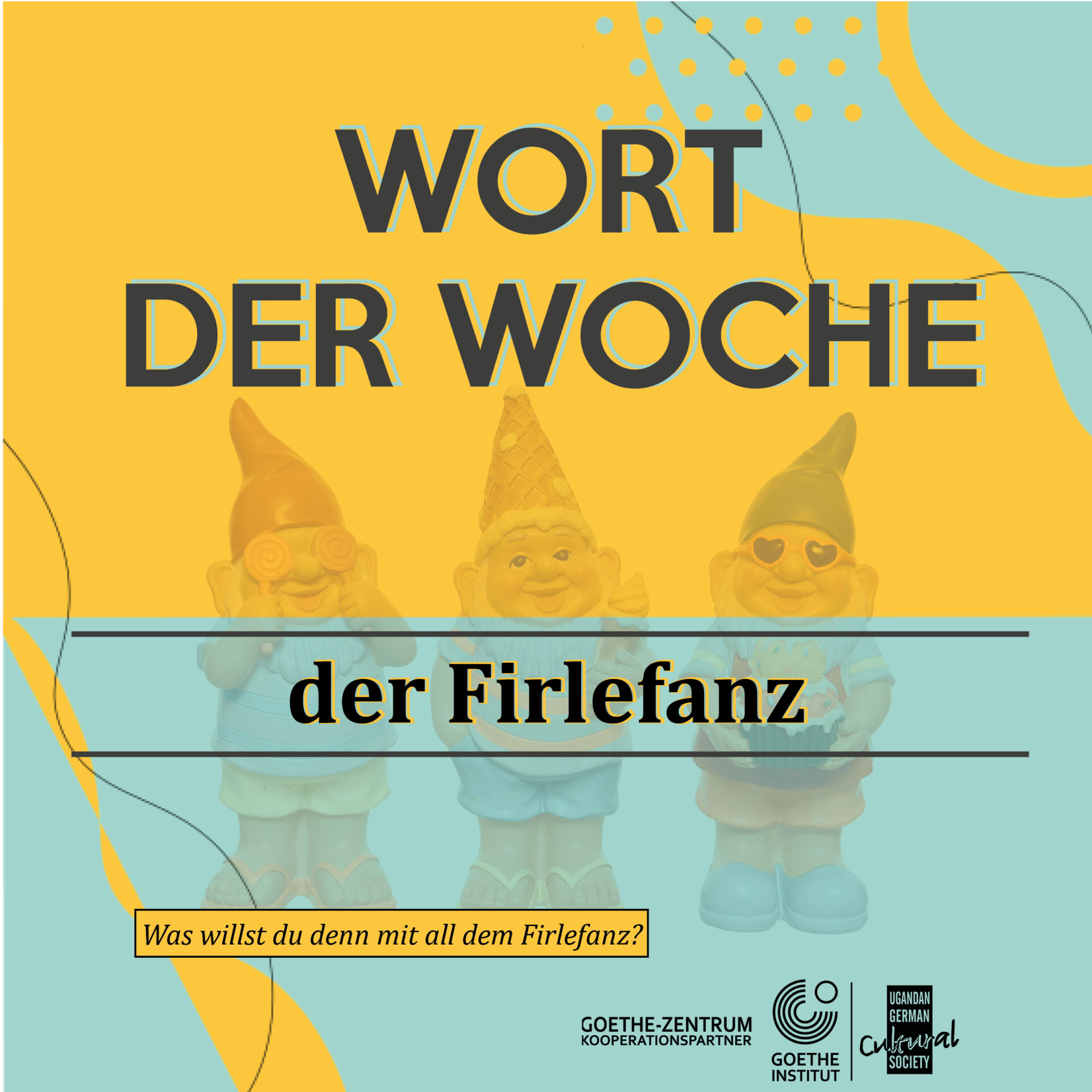
DER FIRLEFANZ
Firlefanz describes something very unnecessary. The word today colloquially pejoratively describes unnecessary items or junk… Or people use it to state out they think what you are doing is goofy or stupid!
The word originates from a fast, jumping dance people used to perform in the middle age.
So next time you want to make sure someone understands what they are doing is silly just tell them: Stop with this Firlefanz!!!


FREMDSCHÄMEN
Have you seen the YouTube video of Prince Charles trying to be cool as a DJ and saying "Dig that crazy rhythm!"? Uhh... a moment to be ashamed of! The literally means you are ashamed of someone else. You can say vicarious embarrassment or empathic embarrassment .
Fremdschämen is the feeling of discomfort, inadequacy, embarrassment, rejection and disapproval that we feel in our own skin before an act of another person that we consider laughable, deplorable or pathetic.
In other words, someone does something humiliating and, regardless of how that person feels about it, we feel “the same shame” as if it were us who were doing it and someone was making us look bad. This is basically what we experience when we see another person making a fool of themselves in front of us and we feel uncomfortable about it.
In German, fremdschämen is a so-called neologism, i.e. a word that has not been in common usage for very long. It was only added to the Duden dictionary in 2009 and was named Word of the Year in Austria in 2010.
Many young people today refer to a situation to be embarrassed by - also in Germany - as "cringe". Cringe, in turn, has been chosen as the Youth Word of the Year 2021 in Germany.
Have you ever been in a cringing situation?


JEIN
You ask someone: You like this movie? And then this person answers with yes or no.
Not necessarily in the German language. There is the word JEIN, it is a mixture of the words Ja (yes) and Nein (no). It basically shows indecision within the opportunities you can choose. After saying Jein, people mostly start giving pro and contra arguments about the discussed topic.
You can also use it when you do not want to say your opinion very clearly because you do not want to be mean so it can be very useful.
What is your best moment where you just wanted to use the word JEIN?

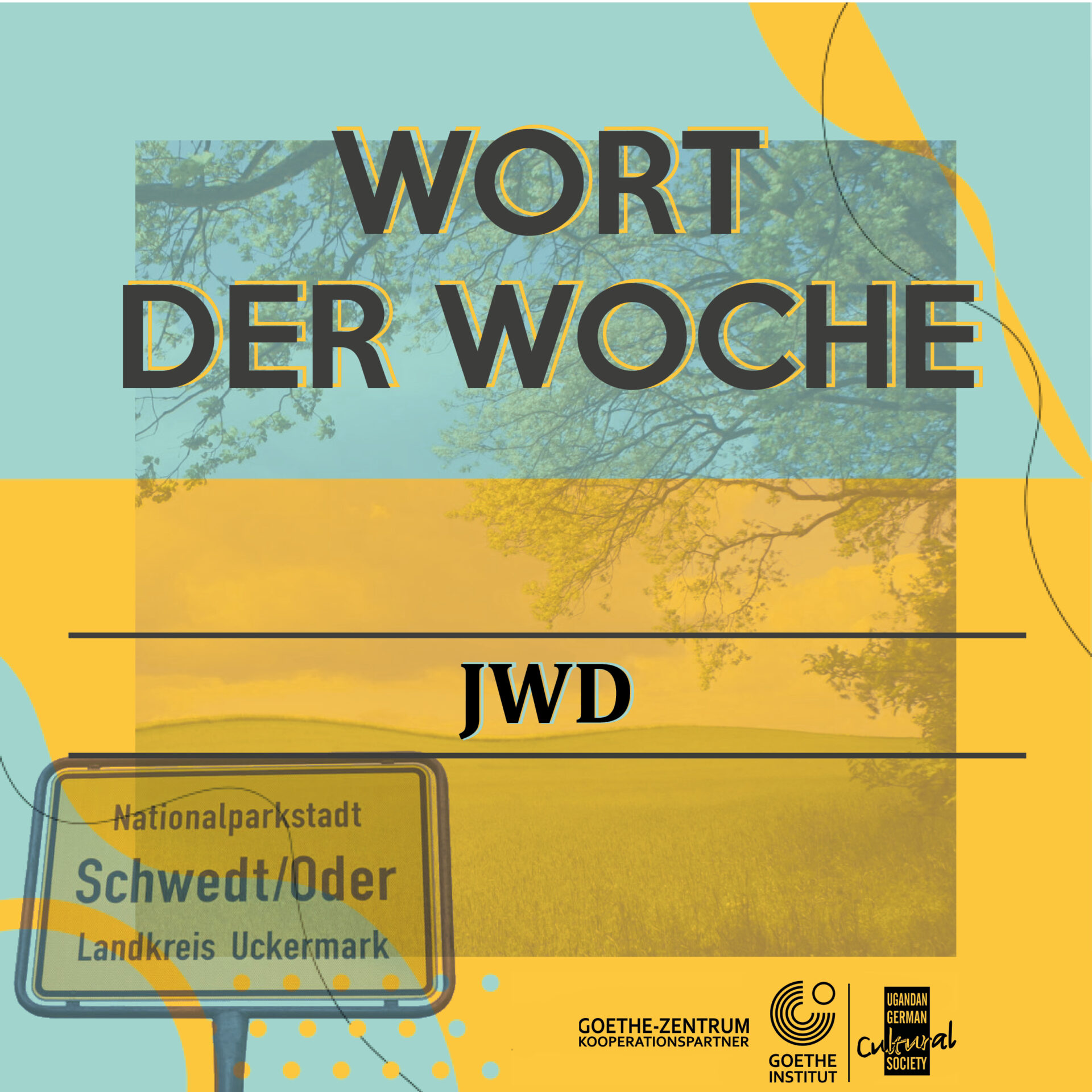
JWD (pronounced 'jott-we-de')
Okay, admittedly, this one is rather specific, just like the Berliner are. A not too old Berlinerism literally saying ‘janz weit draußen’ (‘janz’ Berliner slang for ‘ganz’ standard German) that can be translated to English into something like ‘very far away’.
But what exactly is very far away? For example, the Berlin hinterland or even some outlying areas where there is a lot of "Jegend" (= Gegend, translated area) are jwd. The term is mainly used for places that are not easy to reach. So if a Berliner is facing a long, complicated journey, perhaps even just to the outskirts of the city, you are most likely to hear an annoyed 'Dit is doch jottwede!' (Das ist doch ganz weit weg! - This is just very far away!)
Very small digression: Don't be surprised, the letter G is very often pronounced as J in Berlin, e.g. Gurke = Jurke, Gott = Jott, genau = jenau ...
Check https://www.goethe.de/prj/ger/de/kre/24354589.html or https://www.berlin.de/tourismus/berlinerisch/ for even more backgound on Berlin slang!

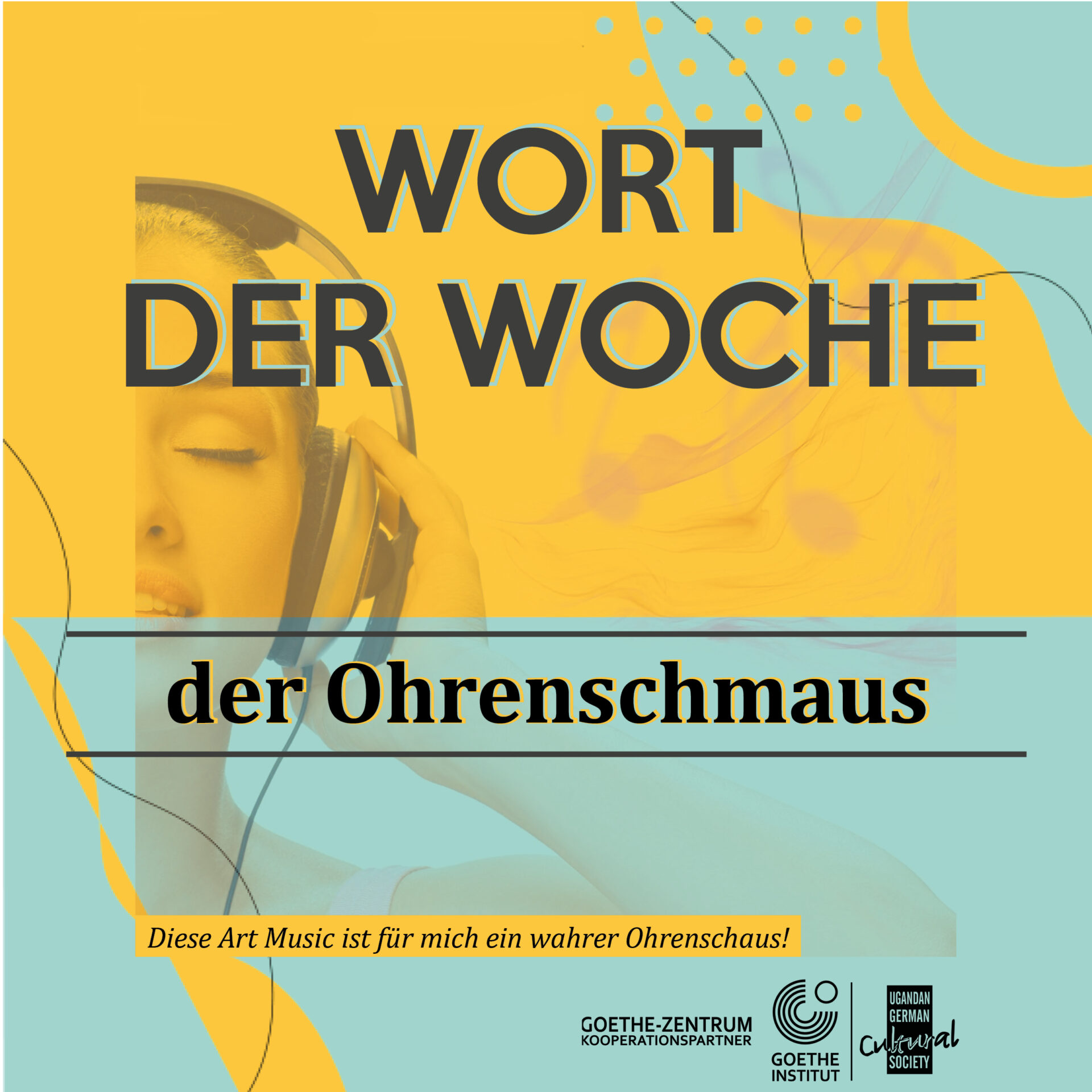
DER OHRENSCHMAUS
Oh, that sounds so beautiful! With "Ohrenschmaus" we colloquially refer to something very nice sounding.
In the 17th century, "Schmaus" referred to a festive meal with plenty of good food and drink. Isn't it obvious to transfer the pleasure of eating to the pleasure of listening - to good music or the sound of nature, for example?
What is the most beautiful "Ohrenschmaus" to you?


DIE RABENMUTTER
The Rabenmutter literally translated raven mother describes a mother who neglects her child. But why the raven, why is the raven so bad? The raven is actually a bird, isn't it? Well, it's an animal metaphor: young ravens are very clumsy on the ground after leaving the nest, and it seems that the parents leave it to its own devices too soon. If we now transfer this to humans, i.e. that the mother no longer cares for the child or even treats it badly, then we have just: a raven mother. Or still worse: Rabeneltern.
What would be the characteristics of Rabenmuter for you?


TJA ¯\_(ツ)_/¯
That's something you'll hear a lot from a German: Tja! The closest word to that in English is "well" as in:
- Tja, so ist es. (Well, that’s how it is.)
- Tja, was soll ich sagen? (Well, what should/can I say?)
But it’s not quite that simple! For when people say ‘Tja’ before a sentence, it is as if they are saying ‘Tough luck, buddy’. There is a sense of Schicksal (destiny) about this word Tja.
- Ich schaffe es heute nicht. (I won’t make it today.)
- Tja, das ist schade. (Well, that’s a shame)
Sometimes the Tja can also signify the start of an explanation, especially if the answer will not be what the other person expects to hear:
- Habt ihr euch gestern getroffen? (Did you meet up yesterday?)
- Tja, wir wollten und treffen, aber sie hatte zu viel zu tun. (Well, we wanted to meet, but she had too much to do.)
There really is no ‘hard-and-fast rule’ on when it is appropriate to insert a term such as tja into your speech: Tja is very versatile. You could say that ‘Tja’ is the equivalent of a person shrugging their shoulders as if to say ‘What can I do?’.
If you’re still confused about how and when to use it, this might help! This is a funny explanation of it that has been circling the internet for several years, though its origin is unknown to me:
Tja is a response to:
- little accidents
- things you can’t change
- when you have to admit that you are wrong
- a spilled over beer
- bad s*x
- bigger accidents
- worst accidents
- zombie outbreak
- the apocalypse
- no bread in the house
- …
Tja ¯\_(ツ)_/¯

